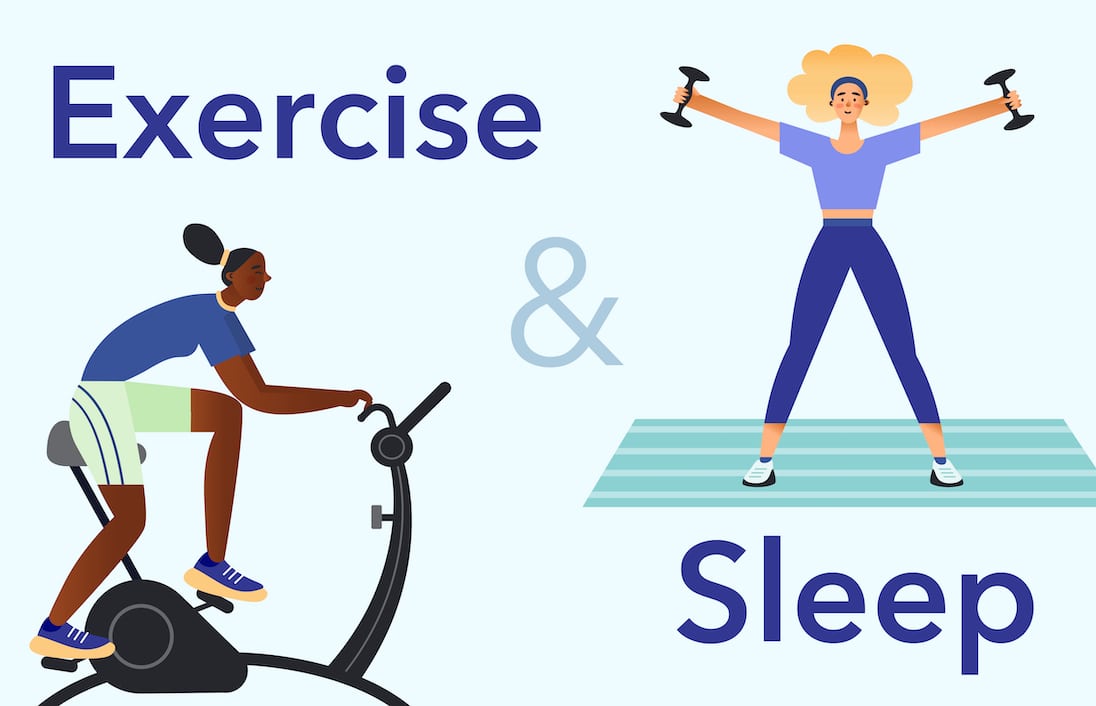As adults, we understand the importance of a good night’s sleep. We’ve heard it time and time again, that we should aim for 7-9 hours of sleep each night. But did you know that sleep can also have a significant impact on our exercise performance and recovery?
In this blog, we will explore the relationship between sleep and exercise and discuss the ways in which sleep can affect our athletic performance.
The Importance of Sleep for Exercise Performance and Recovery
There are a variety of reasons why sleep is essential for athletes and fitness enthusiasts. Firstly, sleep plays a critical role in the recovery process. During sleep, our bodies repair damaged tissues and replenish energy stores, allowing us to recover from intense exercise.
Moreover, sleep is necessary for optimal cognitive function. When we sleep, our brains consolidate memories, process information, and regulate emotions. This is particularly important for athletes who need to maintain focus, concentration, and mental clarity during training and competition.
Finally, sleep is also essential for the regulation of hormones. Specifically, sleep helps to regulate levels of cortisol, a hormone that is released in response to stress. Cortisol can interfere with the production of testosterone, which is critical for muscle growth and recovery.
The Impact of Sleep on Exercise Performance
In addition to its critical role in recovery, sleep also has a significant impact on exercise performance. Studies have shown that sleep deprivation can lead to decreased athletic performance, including reduced endurance, slower reaction times, and decreased accuracy.
Sleep deprivation can also impair muscle recovery and growth. This is because sleep is necessary for the production of growth hormone, which is essential for the repair and growth of muscle tissue. Without adequate sleep, athletes may struggle to make gains in strength and muscle mass.
How Much Sleep Do Athletes Need?
So, how much sleep do athletes need to perform at their best? While individual sleep needs can vary, most adults require 7-9 hours of sleep each night. Athletes, however, may require even more sleep, particularly if they are training at high intensity or for long periods.
Some athletes may require as much as 10-12 hours of sleep per night to support their training and recovery needs. It’s important to note, however, that it’s not just about the quantity of sleep but also the quality. Athletes should aim for restful, uninterrupted sleep each night to support optimal recovery and performance.
Tips for Improving Sleep Quality
If you’re an athlete struggling to get adequate sleep, there are several strategies you can try to improve sleep quality. Firstly, it’s important to establish a consistent sleep routine, going to bed and waking up at the same time each day.
It’s also important to create a sleep-conducive environment, which means keeping your bedroom cool, dark, and quiet. Additionally, you may want to try limiting exposure to electronic devices before bed, as the blue light emitted by screens can interfere with the production of the sleep hormone melatonin.
Finally, it’s worth noting that certain habits can interfere with sleep quality, including consuming caffeine or alcohol close to bedtime, eating heavy meals before bed, and exercising too close to bedtime.
In conclusion, sleep is critical for optimal athletic performance and recovery. Without adequate sleep, athletes may struggle to make gains in strength and muscle mass, and may experience reduced endurance and cognitive function.
If you’re an athlete or fitness enthusiast looking to optimize your performance, it’s essential to prioritize sleep. Aim for 7-9 hours of restful sleep each night, establish a consistent sleep routine, and create a sleep-conducive environment to support your training and recovery needs. By prioritizing sleep, you can take your athletic performance to the next level.

